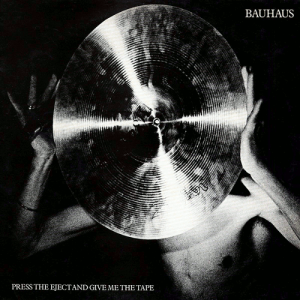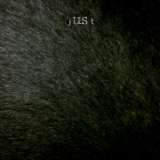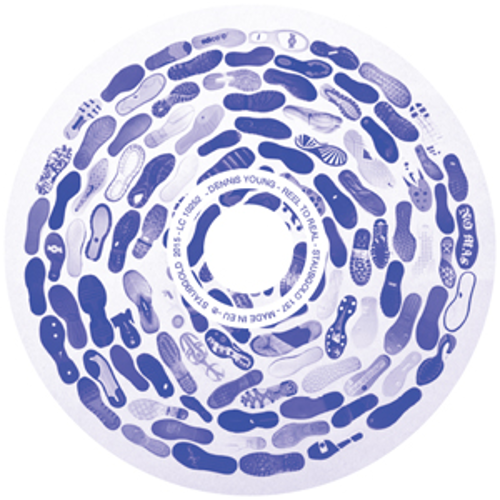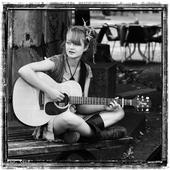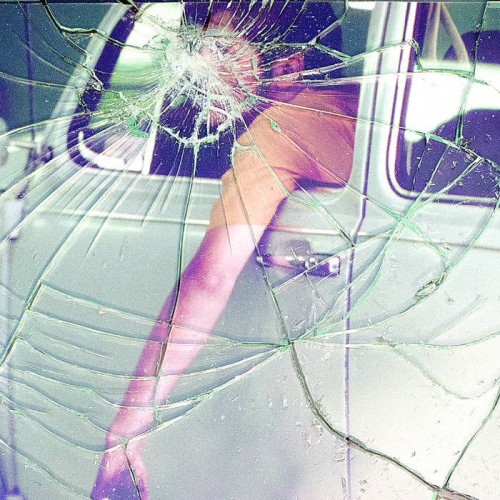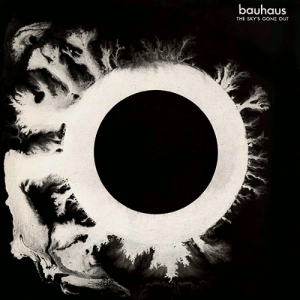 For me, one of the best things about Bauhaus was that they managed to cover so much groundover a relatively short career and for each album to be a rapid progression from the previous. After the dark dealings of In The Flat Field and the esoteric spirituality of Mask, The Sky’s Gone Out found the band really stretching their wings with so many different styles and textures influencing the song-writing. All this was then tied together by Peter Murphy‘s individual vocalising; I don’t hold much with the David Bowie comparisons, they are just lazy references to the “Ziggy” cover.
For me, one of the best things about Bauhaus was that they managed to cover so much groundover a relatively short career and for each album to be a rapid progression from the previous. After the dark dealings of In The Flat Field and the esoteric spirituality of Mask, The Sky’s Gone Out found the band really stretching their wings with so many different styles and textures influencing the song-writing. All this was then tied together by Peter Murphy‘s individual vocalising; I don’t hold much with the David Bowie comparisons, they are just lazy references to the “Ziggy” cover.
Each track seems to tell a very different tale on The Sky’s Gone Out, with all of them being inhabited completely by the band. As a quartet, they seemed to be less and less affected by outside influences and you can imagine them locking themselves away in the studio, just nailing this album track by track, exactly as they had planned.
Rather like Nick Cave to follow, Bauhaus had the ability to take somebody else’s song and make it their own. After T-Rex and John Cale, they turned their attention to Brian Eno‘s “Third Uncle” to open this album and what a job of terror they wrought. It was like they were the hounds chasing a rabbit that was the original track, scaring it and snapping at it until it jumped screaming from a cliff just to escape the onslaught. Those relentless drums and the spray of blistering guitar noise, Murphy sounding more unhinged than ever before, the band fully invested as it ends in a deranged clatter. It is an extraordinary opening, but one that they struggled to replicate in the studio — so borrowed this version from a Peel Session.It is followed by its antithesis, the acoustic guitar-led “Silent Hedges”. The bass is cavernous and resonant, and the lyrics are interesting — and at points during the middle eight, the track sounds genuinely hopeful. The delivery of the line “What happens when the intoxication of success has evaporated” is sublime and Murphy’s vocal here is particularly pleasant, and with the band backing him up with a swooning delivery, it is a lovely warm track that nods ever so slightly to Mask. Things take a turn for the post-punk on “In The Night”, a tale of suicide fully inhabited by the band; especially Murphy, who sounds wild by the end of it, his voice tearing into the sky, and then a turn for the industrial on “Swing The Heartache”. Kevin Haskin‘s drums are like well-oiled pistons, gleaming in the dark and the bass is so deep, it could be miles underground. There is a glance towards the next album on “Spirit”, with its strangely music hall feel. Again acoustic-led, there is extraordinary vitality here, with Murphy chanting “We love our audience” ad infinitum as the band swells with a new-found grace towards its finale. The way that their more standard numbers are interspersed with songs looking to into a brighter future makes for a fascinating listen, and this is only at the end of side one.
Side two starts with a kind of triptych. The mysterious air of “The Three Shadows Part 1” has a rather withdrawn feel, an Erik Satie-like mood that gives nothing away. It is setting a scene and again turning its back on what was happening on side one, drawing us further into a dilapidated and abandoned house, the focus being on the small details hidden in dark corners, the absurd and surreal lyrics of part two, delivered in a warped music hall vamp, his natural vibrato resonant and warm. The band meanwhile sound as though they are accompanying somebody to the gallows, with Murphy’s lyrics of fish and pus and slicing the cheeks off babies highlighting their efforts to sow confusion and doubt in the mind of the listener. Part three turns psychotic, Murphy roaring, the piano frantic and even violin being added into the fray.It is a breath-taking vignette that leads directly into the acoustic guitar and double bass lullaby “All We Ever Wanted Was Everything”. Here, Murphy’s voice is stripped of any artifice or characterisation, and he sounds reticent and calm, almost unrecognisable. As he sobs, “Oh, to be the cream”, you feel a forlorn sense of hopelessness, which is unusual for this strictly self-contained band. Final track “Exquisite Corpse” is just enough to push the first-time listener over the edge. It is very odd, a series of tiny suites delivered with backwards effects, a harpsichord, more piano and a very throaty voice. There are coughs and snores, Daniel Ash doing spoken word, screaming against a dub reggae backing and then an abrupt end. We know that Bauhaus enjoyed experimentation when given the opportunity, and this is an absolute classic example of them playing with the audience’s expectations and at the same time indulging a desire to tinker.
For me, this album was their zenith and it is great to see it back on vinyl for the first time in ages. Just go and snap it up, because they would never again be as vital and as united again.Press The Eject And Give Me The Tape is a live album that was originally given away with the first 10,000 copies of The Sky’s Gone Out and at some later point was given a standalone release. Now, I am not much of a one for live albums, but this is a record of a band at their scorching peak. Tracks are taken from three venues recorded between the end of ’81 and beginning of ’82 and encompass the first two albums and early singles. Opener “In The Flat Field” is an adrenalin surge of dark energy with the pummelling intensity of the drums and the high-pitched strobe-like guitar giving the sense of effort, Murphy’s vocals on the edge of his capabilities.
It glitters and pulses completely, unlike the version of “Rosegarden Funeral Of Sores” that spits and scrapes like a poisoned slug. Haskin’s drums sound like swords clashing as Ash and Murphy inject as much viciousness and disgust into the track, Ash’s guitar a solitary wail of feedback at times. These diametric opposites are the key to the band and the key to this album, but where it succeeds is that generally these versions have more bite or more anima than the studio versions. “Dancing” is a manic funk mess akin to James Chance while “The Man With X-ray Eyes” utterly destroys the album version. It is slow and sinister, creeping full of dread. When Murphy jiggles his own throat to create a horribly unnatural vibrato, it just adds to the paranoia. Even the weaker songs like “Spy In The Cab” and “In Fear Of Fear” are given the opportunity to outshine their album versions, the latter’s manic sax line being particularly enjoyable.
As the album ends, the last two tracks are a helter-skelter kick in the teeth, “Stigmata Martyr” and “Dark Entries” being drug-fuelled ravages of the originals and leaving the listener breathless. The fact that it contains the definitive “Bela Lugosi’s Dead” and an aching “Hollow Hills” means that this is an absolute essential purchase. My only complaint was going to be what is the obsession with white vinyl these days, but to paraphrase David J, “coloured lights are for Christmas trees”.-Mr Olivetti-
